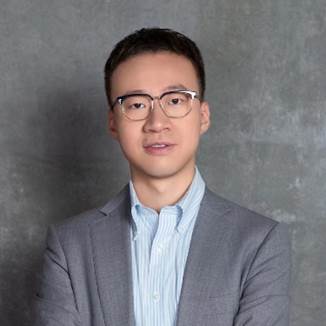检测到您当前使用浏览器版本过于老旧,会导致无法正常浏览网站;请您使用电脑里的其他浏览器如:360、QQ、搜狗浏览器的极速模式浏览,或者使用谷歌、火狐等浏览器。
 下载Firefox
下载Firefox
检测到您当前使用浏览器版本过于老旧,会导致无法正常浏览网站;请您使用电脑里的其他浏览器如:360、QQ、搜狗浏览器的极速模式浏览,或者使用谷歌、火狐等浏览器。
 下载Firefox
下载Firefox
北京大学定量生物学中心
学术报告
题 目: The coming age of AI driven biomolecular dynamics simulation with ab initio accuracy
报告人: Tong Wang, Ph.D.
Senior Researcher, Microsoft Research
时 间: 12月3日(周二)13:30-14:30
地 点: 吕志和楼B101
主持人: 宋晨 研究员
摘要:
As the Nobel Prize in Chemistry 2024 was awarded to protein structure prediction and protein design, how to leverage artificial intelligence (AI) to accurately characterize the dynamic motions of proteins is yet another challenge to be tackled. We introduce an AI powered ab initio biomolecular dynamics system (AI2BMD) that can efficiently simulate full-atom large biomolecules with ab initio accuracy and was recently published on Nature. AI2BMD uses a protein fragmentation scheme and machine learning force field to achieve ab initio accuracy on energy and force calculations for various proteins comprising over 10,000 atoms. Compared to quantum simulation approach, such as Density Functional Theory, it reduces computational time by several orders of magnitude. AI2BMD demonstrated its capability for efficiently exploring the conformational space of peptides and proteins, enabling precise thermodynamic property calculations that are well aligned with experiments. Raised by AI2BMD and other works, the coming age of AI driven biomolecular dynamics simulation could potentially complement wet-lab experiments, detect the dynamic processes of bioactivities, and enable biomedical research that is currently impossible to conduct.
Dr. Tong Wang is the Senior Researcher at Microsoft Research. He received his Ph.D. at Tsinghua University and held a visiting Ph.D. experience at Harvard University. His research focuses on algorithm design and applications on molecular dynamics simulation powered by artificial intelligence, machine learning force field, computer-aided drug discovery and protein structure prediction. Dr. Wang published a series of papers as the first and corresponding authors on Nature, Nature Machine Intelligence, Nature Communications, Cell Research and so on, and holds several China and US patents. As the team leader, he won the championship in the First Global AI Drug Development Competition. His research won “Top Downloaded Article” Award by Wiley Press. He is the committee member of Chinese Society of Bioinformatics.
